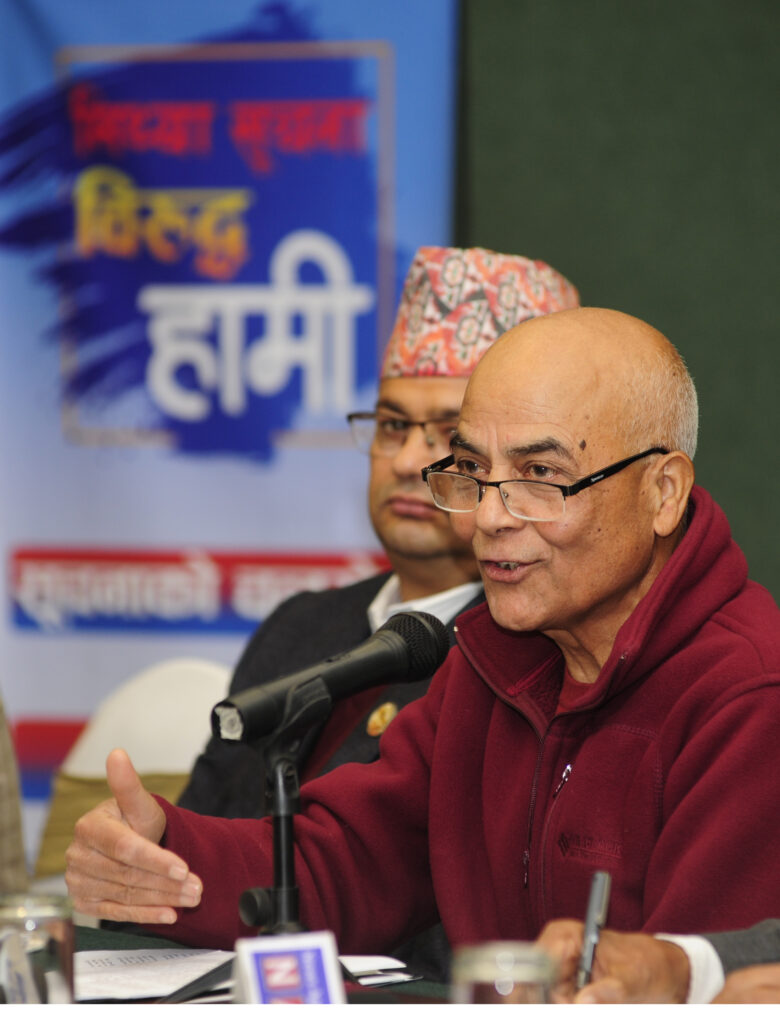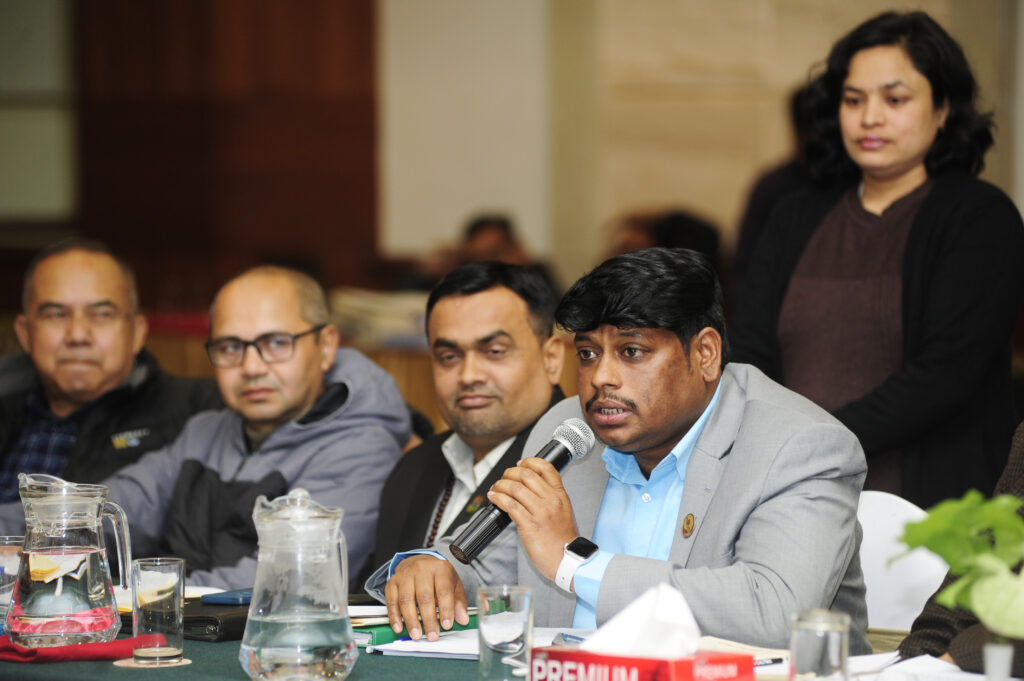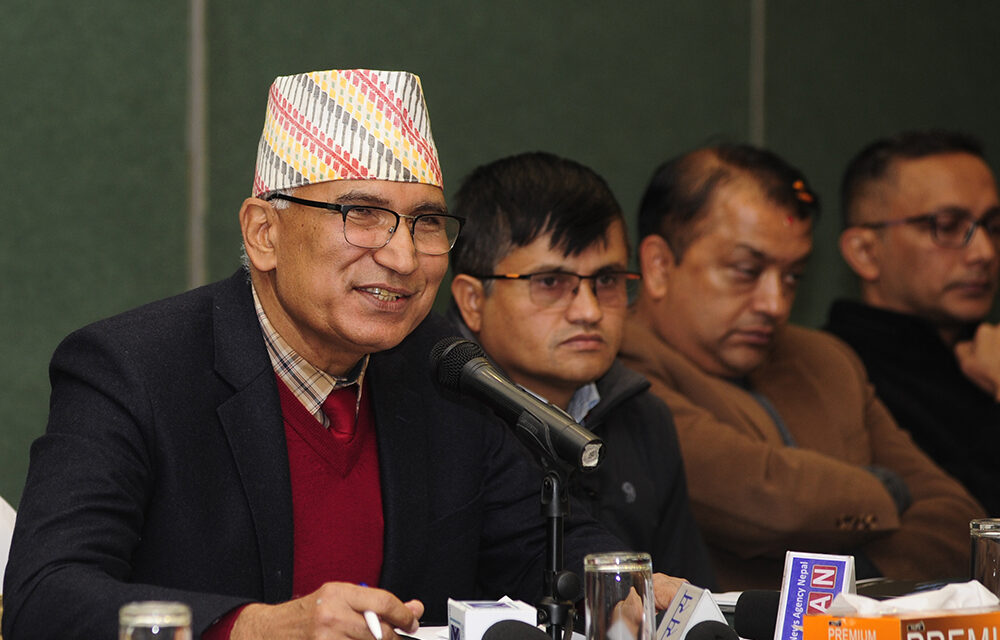Top leaders of main political parties and Members of Parliament (MPs) asserted that the misuse of information technology and the adverse effects of misinformation are escalating at an alarming rate, emphasizing the need for collaborative efforts to mitigate its consequences.
During a program organized by the Center for Media Research – Nepal (CMR-Nepal) and the International Republican Institute (IRI) in Kathmandu, former Speaker, as well as the Vice Chair and Spokesperson of CPN Maoist Center, Agni Prasad Sapkota, remarked that the recent developments in information technology have both positive and negative ramifications, which are proving to be increasingly detrimental.

CMR-Nepal chair Deepak Aryal speaks as former speaker of the House and ruling Maoist party vice-chair Agni Sapkota, former chief election commissioner Bhojraj Pokharel, president of Federation of Nepali Journalists Bipul Pokharel and Nepali Congress MP Min Biswakarma look on.
He underscored that these developments pose a threat to political parties, governments, state institutions, the media, and ordinary citizens alike.
Bishnu Paudel, the Vice Chair of CPN-UML, emphasized the necessity of controlling the misuse of information technology and initiating discussions on how it can be leveraged for positive purposes.

Gagan Thapa, a general secretary of the Nepali Congress, urged the state to formulate essential rules and regulations to address the adverse effects stemming from the advancement of information technology. He cautioned that failure to curb the dissemination of false information and propaganda, particularly during elections, could lead to grave consequences.
Thapa stated that all political parties should come together to halt the assault on the achievements that have been attained. He expressed concern that the accomplishments of political parties are under attack through various means, emphasizing the need for all parties to unite in their defense.
“While we engage in internal strife, we are neglecting the assault on our achievements. Attention should be directed towards addressing this issue,” he remarked.
Thapa asserted that the assault on achievements cannot be thwarted unless all political parties collaborate.
Regarding the matter, Thapa highlighted the necessity of deliberating on how all political parties and leaders can collaborate to safeguard these achievements. Additionally, he underscored the importance of considering the societal impact when discussing freedom of the press.

Former Chief Election Commissioner Bhojraj Pokharel, presenting a working paper, noted that even developed countries like the US have not been immune to the repercussions of false information. He recommended that political parties and the government take proactive measures, as it will be exceedingly challenging for a country like Nepal to counteract these effects.

Bipul Pokharel, President of the Federation of Nepalese Journalists, emphasized the importance of proper utilization of media platforms in combating misinformation and information manipulation. Pokharel urged to be self-regulation to mitigate the information manipulation.

During the program, CMR-Nepal presented the outcomes of various research and discussions on information manipulation in Nepal.






The discourse concluded with a resounding commitment from all stakeholders to collaborate in addressing the threat of information manipulations. Participants emphasized the need for continued dialogue and proactive measures to safeguard democratic values and ensure the integrity of information dissemination in Nepal.








